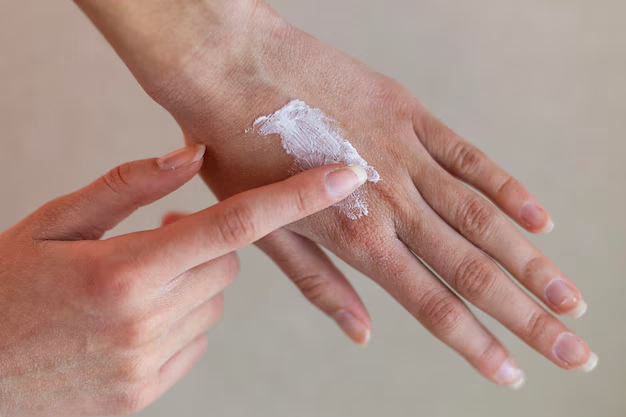Find Relief: Your Guide to Managing and Reducing Eczema Effective Strategies for Comfort
Living with eczema can be a daily challenge, with persistent itchiness and discomfort often disrupting life's simple pleasures. For many, finding relief is a continual journey. Eczema, also known as atopic dermatitis, isn't just a minor skin irritation—it’s a condition that demands understanding and strategic care. If you've found yourself at a loss, searching for ways to ease the symptoms and enhance your quality of life, you're not alone. Let's explore practical, empowering approaches to managing eczema effectively.
Understanding Eczema: What Are You Dealing With?
Before diving into solutions, it's crucial to grasp what eczema truly is. This chronic skin condition is characterized by inflamed, itchy, and often cracked skin. While the exact cause remains unknown, it's believed to result from an interplay of genetic and environmental factors. Eczema can manifest differently depending on the individual, making personalized care pivotal.
The Role of Triggers
Recognizing and managing triggers is a key aspect of controlling eczema flares. Common triggers include:
- Environmental factors: Changes in weather, pollen, and dust.
- Irritants: Such as soaps, detergents, and perfumes.
- Dietary choices: Though not universally impacting all eczema sufferers, some foods may worsen symptoms.
- Stress: Emotional stress can exacerbate physical symptoms.
Daily Habits for Eczema Relief
Building an effective routine can significantly improve eczema symptoms. Consistency is vital in preserving skin health.
Invest in Gentle Skincare
The right skincare routine can go a long way. Here’s what to focus on:
- Moisturize, moisturize, moisturize: Use a thick, fragrance-free moisturizer to keep skin hydrated.
- Mild cleansers: Opt for soap-free, hypoallergenic washes.
- Warm, not hot, baths: Hot water can strip away vital oils, worsening dryness.
Diet and Nutrition: Feeding Your Skin
While food triggers vary, maintaining a balanced diet supports overall health and potentially reduces eczema flare-ups.
- Omega-3 fatty acids: Found in fish and flaxseeds, omega-3s have anti-inflammatory properties.
- Probiotics: Yogurt and fermented foods may help balance gut microbiota, potentially affecting skin health positively.
- Antioxidant-rich foods: Berries, leafy greens, and nuts help combat oxidative stress.
Medical Interventions: When to Seek Help
Sometimes, lifestyle changes alone are insufficient. Understanding when and how to seek medical help is crucial.
Over-the-Counter Solutions
For mild cases, pharmacy shelves offer a variety of tools:
- Hydrocortisone creams: Can reduce inflammation during mild flares.
- Antihistamines: May relieve itching during allergy-induced flares.
Consulting a Dermatologist
Persistent, severe eczema deserves specialized attention. A dermatologist can offer:
- Prescription medications: Such as topical steroids or non-steroidal anti-inflammatory drugs.
- Phototherapy: Controlled light therapy can help in severe cases.
- Patch testing: Identifying specific allergens or irritants exacerbating eczema.
Alternative and Complementary Therapies
Exploring alternative therapies may offer additional relief for those with chronic eczema.
Natural Remedies
While research is ongoing, some natural treatments have been reported anecdotally to help reduce symptoms:
- Coconut oil: Natural moisturizing properties can soothe dry skin.
- Oatmeal baths: Colloidal oatmeal can calm inflamed skin.
Mind-Body Techniques
Reducing stress through certain practices can have a direct effect on skin health:
- Mindfulness meditation: Helps reduce stress, potentially minimizing flare-ups.
- Yoga and Tai Chi: These holistic practices promote relaxation and stress reduction.
Paving the Path to Prevention
While eczema cannot be cured, proactive prevention can minimize flare-ups' frequency and severity.
Environmental Management
Tailor your surroundings to support skin health:
- Humidifiers: Keep indoor air hydrated, especially in dry climates.
- Protective clothing: Soft, breathable fabrics like cotton are less irritating.
- Regular cleaning: Reduce dust and allergens at home.
Skin-Friendly Practices
Integrate these strategies into your lifestyle for better skin:
- Pat dry, don’t rub: After bathing, gently pat skin with a towel to avoid irritation.
- Use sunscreen: Protect sensitive skin from harmful UV rays with a suitable, gentle sunscreen.
Supporting a Loved One with Eczema
If someone close to you suffers from eczema, your support can significantly impact their journey.
- Understanding and patience: Recognize the chronic nature of eczema.
- Be encouraging: Support lifestyle changes and doctor visits.
- Offer help with daily tasks: Assisting in chores can reduce stress and improve overall well-being.
Bridging the physical and emotional aspects of eczema management presents a holistic path toward comfort and confidence. Knowledge and support form the backbone of living well with eczema. Empowered with strategies, individuals can take control of their eczema story, mitigating its impact on their lives.
🌟 Eczema Relief: Key Takeaways
- Identify triggers: Know what exacerbates symptoms and strategize avoidance. ❌
- Consistent skincare: Opt for gentle, hydrating products. 🧴
- Balanced diet: Incorporate anti-inflammatory foods for skin health improvement. 🍎
- Medical guidance: Seek professional help for persistent or severe cases. 🩺
- Proactive habits: Create an environment conducive to skin wellness. 🌿
- Supportive network: Encourage and assist loved ones in their health journey. 🤝
Learning to live with eczema involves understanding, consistency, and a little patience, turning challenges into a journey toward healthier skin and life.

